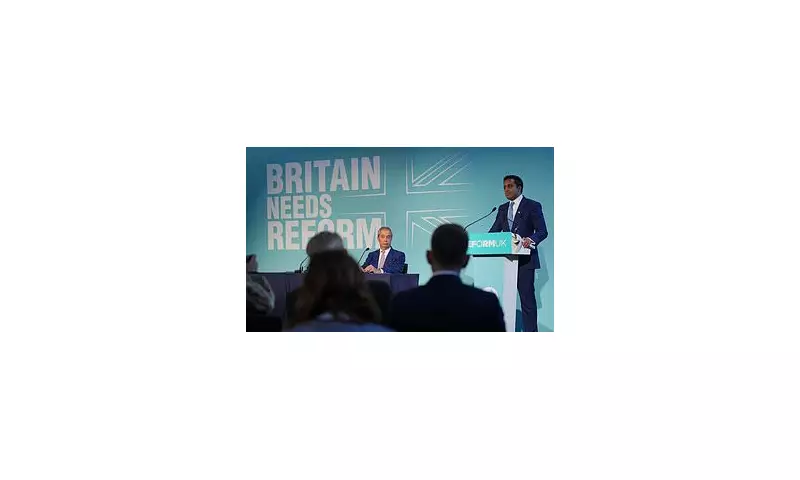
Nigel Farage's Reform UK has launched a blistering attack on Chancellor Rachel Reeves, accusing her of 'treachery' for planning tax increases on British citizens while maintaining what they describe as 'extortionate' spending on foreign nationals.
The £25 Billion Alternative
At a Westminster press conference, Mr Farage and the party's policy chief Zia Yusuf outlined five major measures they claim would save £25 billion in the current financial year alone. They argued this would be sufficient to fill the black hole in public finances that the Chancellor is confronting ahead of her Budget announcement next week.
Reform UK insists their proposals would allow Ms Reeves to avoid implementing further tax rises scheduled for 26 November. The Chancellor is widely anticipated to announce a 'smorgasbord' of tax increases next Wednesday in a bid to balance the books, but Mr Farage and Mr Yusuf maintained that hiking levies represents a political 'choice' rather than a necessity.
Where Reform Would Cut
The party's controversial proposals target several areas of government expenditure. The most significant saving would come from capping the overseas aid budget at just £1 billion annually, potentially saving up to £10 billion. Reform argues that Britain 'simply cannot afford' current spending levels of £13.7 billion set aside for 2025-26, which includes over £2 billion for asylum accommodation.
Another substantial measure involves more than doubling the Immigration Health Surcharge from £1,035 to £2,718 for foreign students and workers using the NHS, which they claim could raise £5 billion extra this year. The party would also extend this charge to those applying for Indefinite Leave to Remain for the first time, though foreign health and care workers would remain exempt.
Further savings identified by Reform include:
- £580 million from deporting the 10,000 Foreign National Offenders currently in UK prisons
- £6 billion by ending Universal Credit payments to foreign nationals, including EU citizens with Settled Status
- £3.5 billion by stopping people with anxiety disorders from claiming Personal Independence Payments (PIP)
A Clash of Economic Visions
Mr Yusuf stated unequivocally: 'These are savings that Rachel Reeves could choose to make in her Budget. The likelihood is she will choose not to do those things and instead choose to raise taxes on British people.' He described Labour's approach as 'a conscious and deliberate decision to continue funding extortionate amounts to foreign nationals, to the detriment of British citizens.'
Mr Farage emphasised that tax increases represent a deliberate choice by the Chancellor, warning: 'What we do know is an increasing tax burden is demotivating, is sending more and more people abroad.' He expressed particular concern about revised Office for National Statistics figures showing 257,000 British nationals left the UK in 2024, significantly higher than initial estimates of 77,000.
The Labour Party responded dismissively, with a spokesman stating: 'Reform can put forward as many back of a fag packet policies as they like - they don't have a plan to deliver for the British people.' They also highlighted Mr Farage's previous support for Liz Truss's controversial mini-Budget, noting 'It's working people who are still paying the price of that recklessness.'
As the Budget approaches, this confrontation sets the stage for a fundamental debate about fiscal responsibility, immigration spending, and who should bear the burden of balancing Britain's books.






